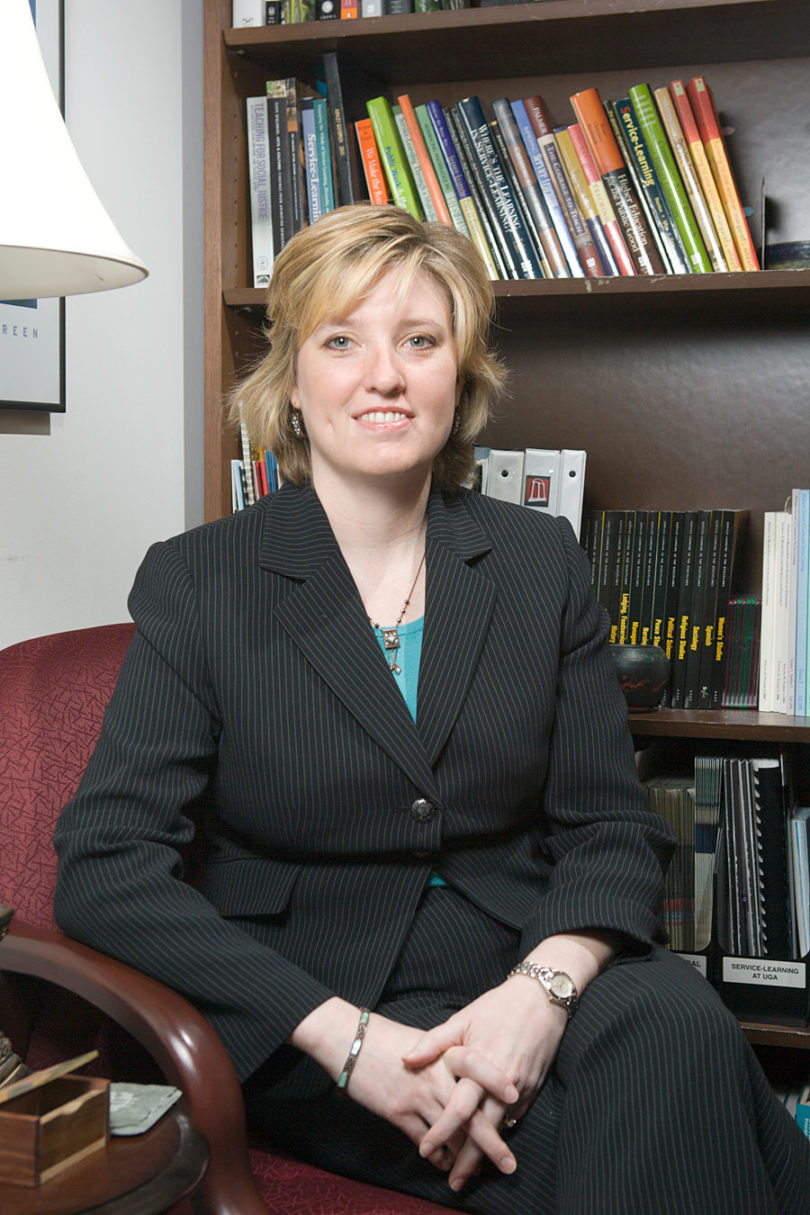A new designation for courses is helping students not only identify which classes contain elements of community engagement, but how pervasive those elements are.
The “S” suffix was approved last year by the University Council, and is now freely attachable to any class that uses service-learning as a teaching and learning strategy, said Shannon Wilder, director of the Office of Service-Learning.
“We wanted to design it like the Honors Program, so that you can have the same class with or without a service-learning component, depending on the course design,” she said. “We hope that the designation will provide more options for students who are interested in doing this kind of learning or who think they might be interested in applying what they are learning to community issues.”
To apply for a designation, instructors must choose from one of four options that rank how much class time, in 25 percent chunks, will be spent on service-learning in the Course Approval Process Automation system.
It’s not only useful in letting students know how much of their grade will depend on community engagement projects, but also in helping the university identify how many classes are using this kind of pedagogy.
The designation also may give students an edge, career-wise, said David Berle, an associate professor of horticulture.
“A lot of students want this on their résumé. They take it as a little something extra,” he said.
Berle teaches four classes that include service-learning elements. One class, Project FOCUS, puts science majors in front of Athens-Clarke County elementary classrooms and tasks them with teaching lessons.
“A lot of the students are pre-med in some form, be it nursing or medicine or something else, so having a semester where they work with children is probably a good thing because, more than likely, they’re going to be working with kids somewhere in their health career,” he said. “That class is almost all service-learning, but there are others that don’t lend themselves to that level of service-learning pedagogy.
His classes lend themselves well the project, but both Berle and Wilder insist that service-learning can be incorporated into many places across campus.
“There are some courses that lend themselves more easily to it, but I think almost every discipline can develop service-learning experiences for their students with a little creativity,” Wilder said. “Our goal is to give every student who wants to participate in service-learning the ability to do so.”
The designation is the first step in a process that will hopefully culminate in an Engaged Scholars certificate, program, which could be available in a few years, she said.
For more information, visit www.servicelearning.uga.edu.





